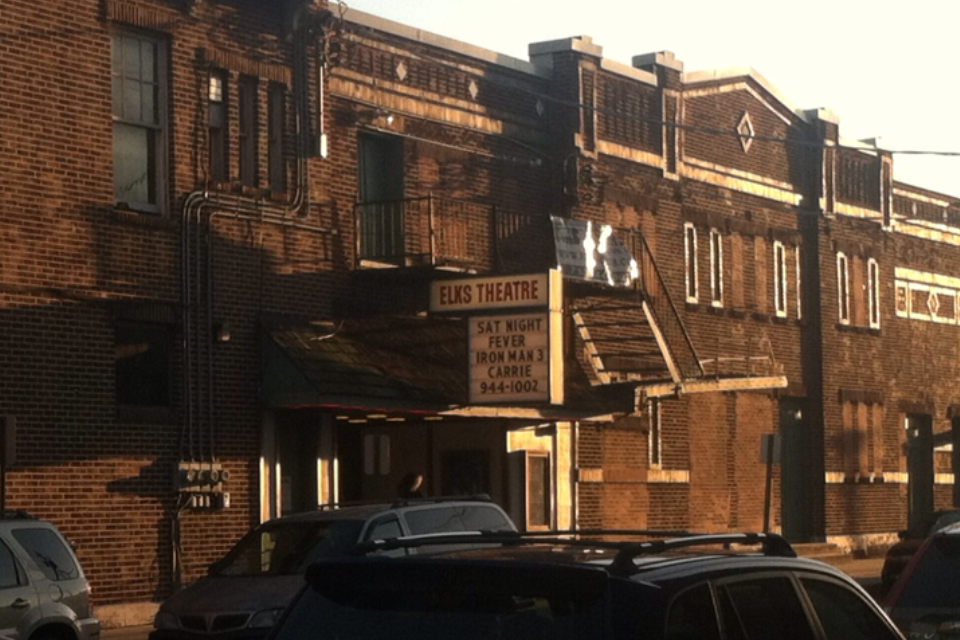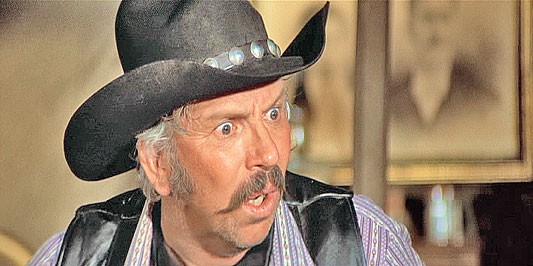Staying relevant. It is a fear actors, directors, content creators, and to be honest, most human beings grapple with constantly. The more than half-century year-old Sunset Boulevard exemplified this fear in the delusional Gloria Swanson. And while I’m sure this obsession is a random extraneous facet of the greatly evolved human consciousness, it may be spin-off on our desire to survive.
This wasn’t part of Birdman. This was Emma Stone actually telling MK the truth.
“If you build it they will come.” While that may have been true at one time, many have since ‘built’ and the audience has been spread thinly. We see the loss of audience at the Elks Theatre weekly. And while the theater hasn’t changed, I understand audiences’ needs have. It’s clear there are more and more forms of entertainment available instantly, and cost and convenience is absolutely the apogee of necessity in the realm of entertainment. And the question lingers, outside the mega-releases like blockbusters Inception, Transformers, and Disney smashes, will there be a place for the movie-going experience within 5–10 years?
And if the industry finds the proper trick to keep box office numbers sustainable, like a 4D gimmick, what will remain of the communal experience- especially an affordable one?

When I first stepped inside the Elks upon committing to the campaign, I imagined bodies in all 469 red seats, including in the serpentine balcony. The curtain in front of the screen would be mechanically pulled open as the glimmer from the projector would kiss the screen to the delight of every single person inside. Lines would be around the block. Stragglers would be turned away at the box office. But a dream would remain a dream.
The findings of a small community survey we conducted a few weeks later revealed surprisingly mixed public opinion about the establishment. Some felt the building, due to its age, wasn’t safe to be in. Others hoped for events outside of movies. And a few were surprised we remained open for business. Were the citizens of Middletown oblivious to the state and needs of the theater? One could certainly argue that. And yet, what is relevant (or isn’t) is hard to deny.
The truth is incontrovertible. Malice may attack it, ignorance may deride it, but in the end, there it is. — Winston Churchill
Our technology isn’t state of the art. We had netting on the ceiling for a roof that had previously been repaired. And for the last few years, the theater wouldn’t have been called pristine. Managing a reputation is no easy feat. We believed that listening would be the key to understanding the community that serves us.
Much of what we learned in the survey was that the Elks was associated with positive memories of patrons seeing films dearest to them, with loved ones. Since DCP was a serious need and our goal was to remind the community of the cinema’s importance, we realized classic film screenings would be ideal fundraisers for the SAVE THE ELKS! Campaign. And while many of our screenings were successful, we found the proceeds functioned as a life preserver during hard times.
Ultimately, the life-blood of the Elks Theatre were those weekends families came to the theater. And while much of their attendance was driven by buzzy marketing campaigns, we discovered parents and their children were our most frequent attendees. For most others in town, going to the movies is irrelevant- as if it were a museum in which they’ve seen all the exhibits. Perhaps for families, the communal experience is still very important.

Here’s where things get tricky, as the struggle to stay relevant…remains….err… relevant.
Every Monday morning, I exchange emails with my father, my partner in the project Dan, our head of theater operations, and our film booker- whom I’ve never met but can only imagine has been around since the silent era.
“No prts of Frozen availb,” the surly agent would say.
“Is there anything else?” We would ask desperately.
“I wuld do Last Vegas or bring back sumer movie,” he would respond.
Let it be known that this is a weekly challenge for cinemas that haven’t converted. After a full afternoon of a seemingly endless exchange of emails, we settle on a movie we are content with or must bite the bullet on. Since we are a single screen theater, the result of our booking is usually one of two things.
1. A tentpole we must hold for sometimes up to three weeks, which sometimes includes the requirement to be open on multiple weekdays. While business will boom the first week, the second, third, or quiet weeknights likely diminishes any profit entirely.
OR
2. A film we would rather not take, but we do out of sacrifice to secure a more obvious hit from the same studio.
Without a doubt, studios feel unconverted theaters are no longer relevant. A small number of prints are struck for any film, if at all, and only a few are assigned to a region. If your cinema is not a high-attendance venue or multiplex, what’s available to you is slim pickings.

It’s hard to remain relevant when your supplier feels you no longer are. Are cinemas still relevant? For the time being, independent theaters like the Elks survive, just barely, by the last available streams of supply. Fortunately, some of us, such as the parents coming to the Elks feel the communal experience is still important. The traditional studio release model of hitting theaters first remains — and in that regard, we fulfill the need of showing the new “must-see” for everyone else.
For how long? Netflix is challenging the status quo with their release of a Crouching Tiger Hidden Dragon sequel next year. And while it is a day-and-date release, the frightening question is whether audiences will choose the ever-popular SVOD platform they are already paying for over a $15-$20 movie ticket per person.
How important is the communal experience compared to instant gratification and convenience? Which is more relevant?
Other posts in the series:
BLANK MARQUEE: Struggle of the Homegrown Cinema, Part I
You Forgot About US: Struggle of the Homegrown Cinema, part III
 Max Einhorn (@MaxEinhorn) is a producer, writer, and crowdfunding planner. After graduating from Temple University’s film program in 2012, he relocated to New York and worked for Good Machine veterans Anthony Bregman at Likely-Story and Glen Basner at FilmNation Entertainment. Einhorn is currently the Manager of Acquisitions and Distribution at FilmRise, a new distribution company based in Brooklyn. He lives in Manhattan with his girlfriend Cara, also his producing partner. Over the past two years, Einhorn has been a tireless crusader for the survival of his hometown cinema, the 103 year-old Elks Theatre in Middletown, PA.
Max Einhorn (@MaxEinhorn) is a producer, writer, and crowdfunding planner. After graduating from Temple University’s film program in 2012, he relocated to New York and worked for Good Machine veterans Anthony Bregman at Likely-Story and Glen Basner at FilmNation Entertainment. Einhorn is currently the Manager of Acquisitions and Distribution at FilmRise, a new distribution company based in Brooklyn. He lives in Manhattan with his girlfriend Cara, also his producing partner. Over the past two years, Einhorn has been a tireless crusader for the survival of his hometown cinema, the 103 year-old Elks Theatre in Middletown, PA.





